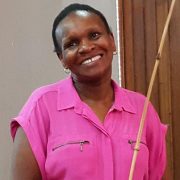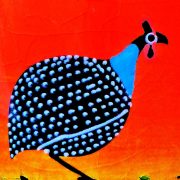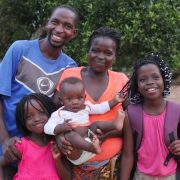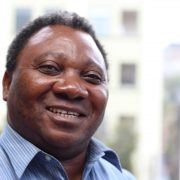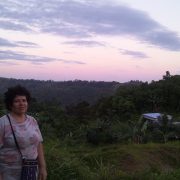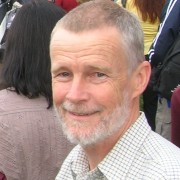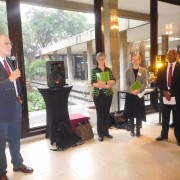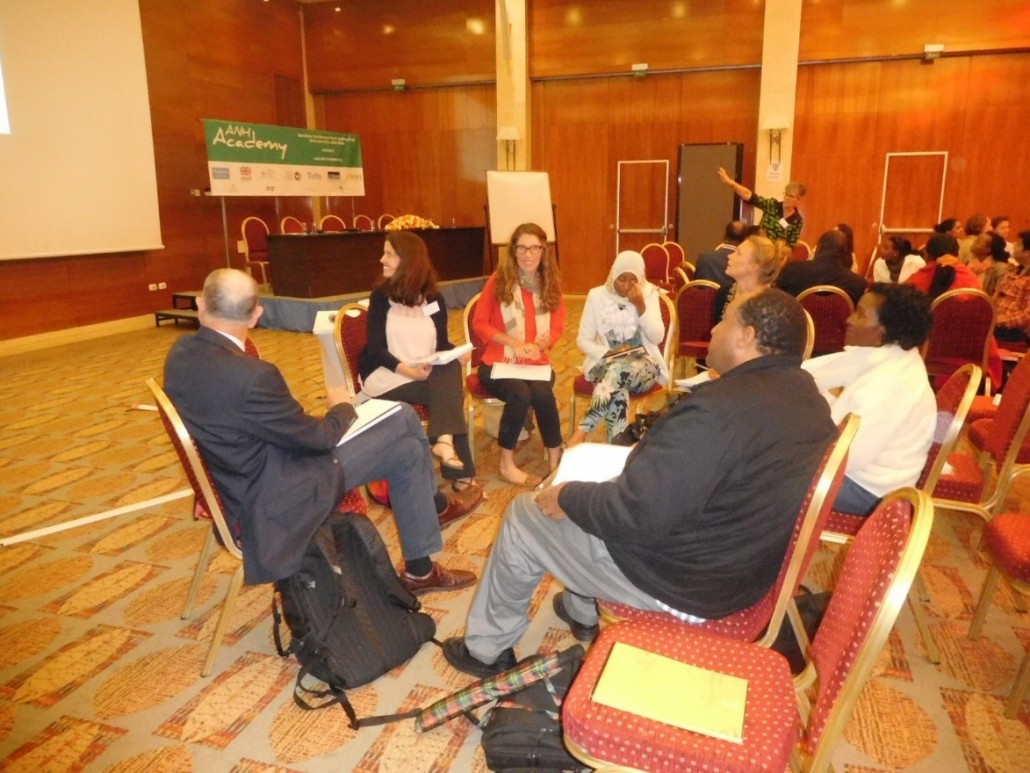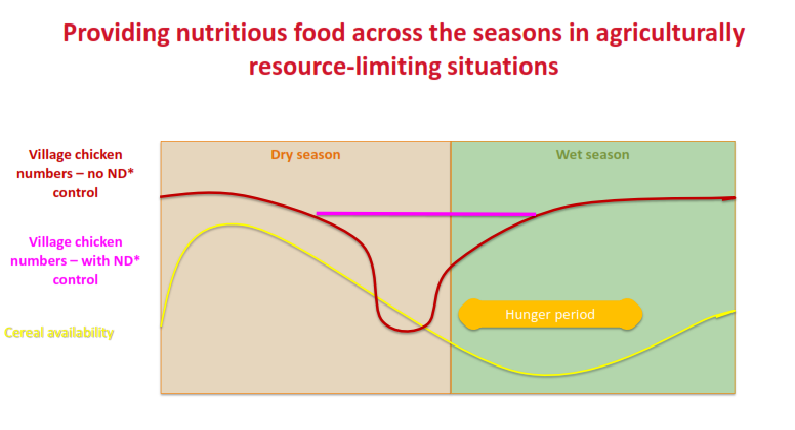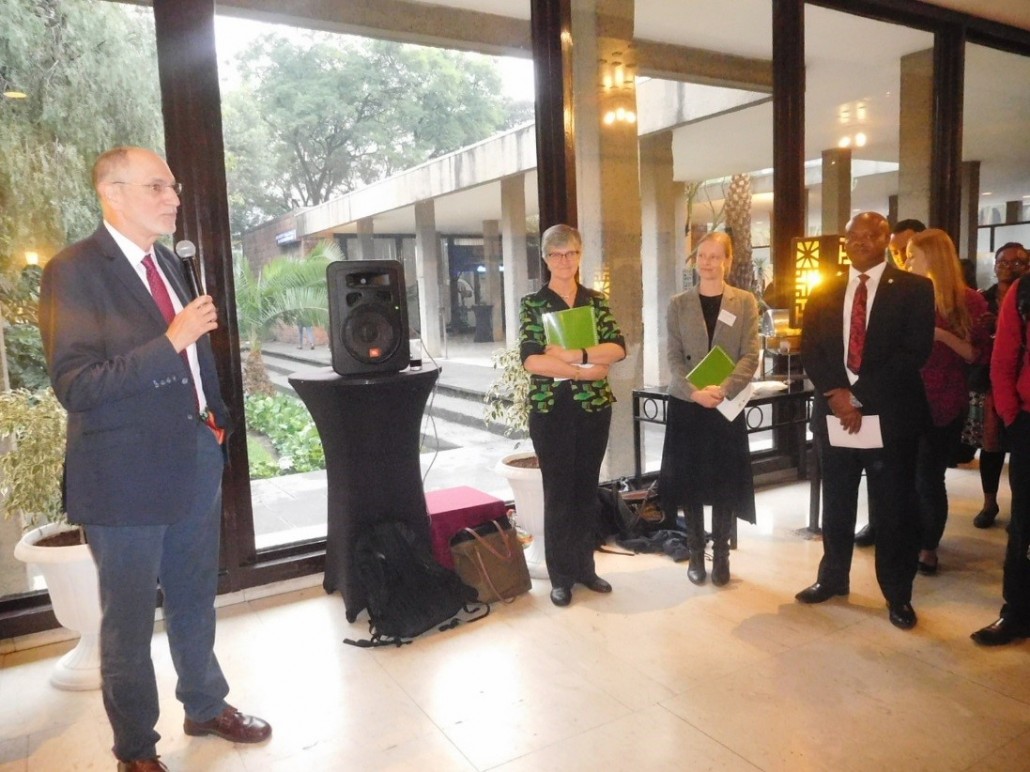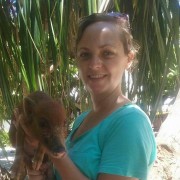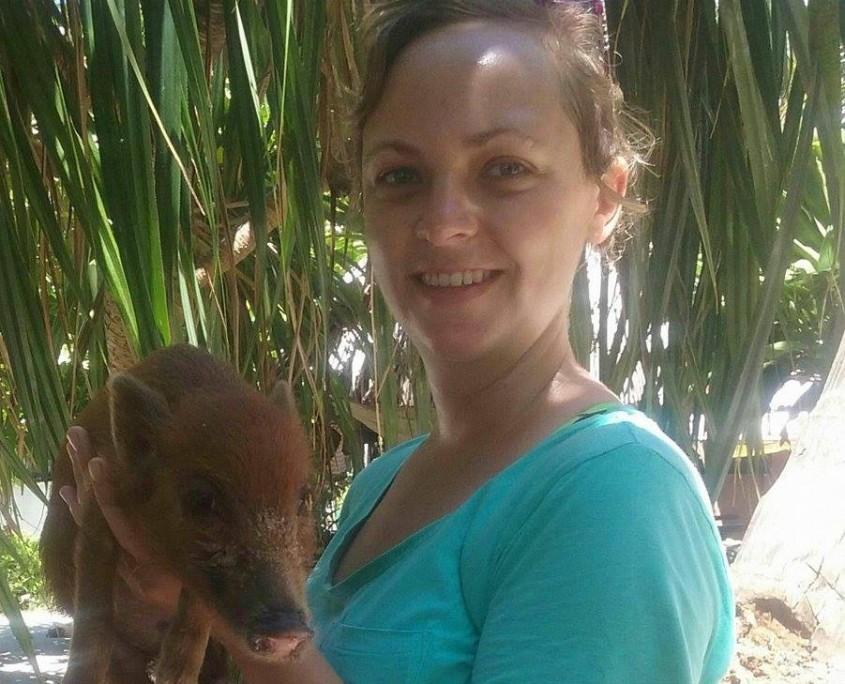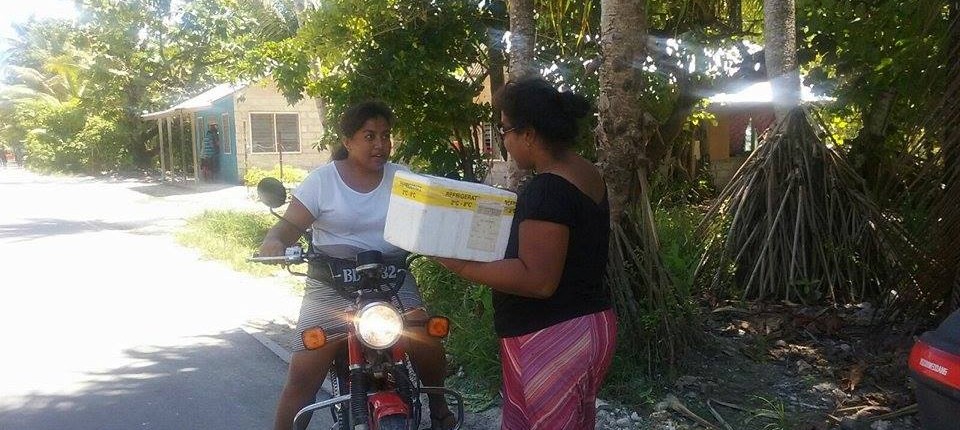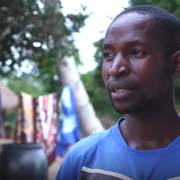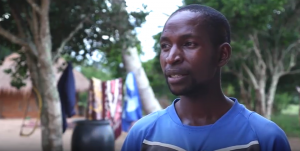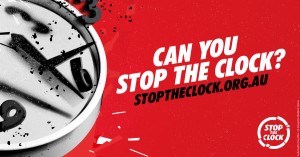Keeping Village Chickens in the Democratic Republic of the Congo: A Pygmy’s Story
/in Get involved/by Eliza SmithA word from our partner in Malawi on International World Youth Skills Day
/in Get involved/by Eliza SmithRobyn Alders launches Veterinary Cold Chain Manual at Agriculture, Nutrition and Health Academy Week in Addis Ababa
/in Get involved/by Eliza SmithThe Agriculture, Nutrition and Health Academy (ANH) Academy is a global research network in agriculture and food systems for improved nutrition and health to serve as a platform for learning and sharing.
Last week KYEEMA’s Robyn Alders attended the ANH Academy Week, an annual event organised by the Leverhulme Centre for Integrative Research on Agriculture and Health (LCIRAH), CGIAR Research Program on Agriculture for Nutrition and Health (A4NH) and Innovative Methods and Metrics for Agriculture and Nutrition Action (IMMANA), bringing together the global community of interdisciplinary researchers and research-users working in this area.
The goal of the event is to facilitate participation and engagement of the African research and research-user communities with participants from around the world through a series of ‘Learning Labs’ and Conference of keynote speakers, plenaries and research presentations.
On 21 June, Robyn (University of Sydney) co-facilitated a learning lab plenary workshop on ‘Options for achieving optimal diets in resource-limited settings’ with Delia Grace (International Livestock Research Institute) and Paula Dominguez-Salas (London School of Tropical Health and Medicine and Royal Veterinary College).
The workshop took an ecohealth approach, assessing nutritional and nutrition-sensitive agriculture and value-chain programs at local and national levels and focusing on sustainable systems, process and policy. Topics covered included the impact of agro-ecological zones on food availability, options for quantifying the nutritional content of available food, trade-offs and synergies between nutritional security and other health and wellbeing goals, and establishing processes that promote facilitating policy environments.
From the Learning Lab workshop presentation initially prepared for the International Congress of the World Veterinary Poultry Association 2015, Capetown, South Africa. (Australian Centre for International Agricultural Research, University of Sydney, CGIAR Research Program on Nutrition and Health, Royal Veterinary College London)
In collaboration with the African Union Pan African Veterinary Vaccine Centre (AU-PANVAC) and the Australian Centre for International Agricultural Research (ACIAR), KYEEMA Foundation was proud to launch the first veterinary cold chain manual targeting animal health practitioners to improve the effectiveness of animal health vaccination in support of food and nutrition security at this session.
Veterinary Cold Chain Launch Speakers: Jeff Waage (Chair, LCIRAH), Johanna Gregory (1st Secretary, Australian Embassy, Addis Ababa), Robyn Alders (KYEEMA Foundation and USyd), Nick Nwankpa (AU-PANVAC).
Meet our volunteer in Kiribati
/in Get involved/by Eliza Smith
Kam na bane ni mauri! Hello everyone!
My name is Jo Clapham. I currently work as an Animal Health Officer for the Agriculture and Livestock Division (ALD) of the Ministry for the Environment, Lands and Agricultural Development (MELAD) in Kiribati.
Kiribati, an island nation in the central Pacific, comprises 33 atolls (low-lying coral islands). It is one of the countries most vulnerable to rising sea levels and with an increasingly dense population, water and food security are important and current issues.
ALD is responsible for domestic agriculture and animal health, assisting communities to develop model gardens, pig and poultry farms, and encouraging communities to eat freshly grown produce. I am working with local agricultural officers to help strengthen research skills, community education materials, and practical training in the health and welfare of livestock and domestic pets. So far I have learned that making some small changes to husbandry practices such as changing the material used for tethers from abrasive and constrictive materials like cord to something flat such as a folded up rice bag may be a way to improve welfare and production in the small subsistence farms that are common in Kiribati.
My role here is a capacity development one, as part of the Australian Volunteer for International Development (AVID) program, an Australian Government initiative. While here I am working closely with animal health and agricultural officers.
Temwanoku Laokim (on bike) is one of the Animal Health Officers I work with in Kiribati.
As the Australian Partner Organisation for this role, KYEEMA has been supporting me with emails, Skype calls and suggestions for potential contributions to MELAD work, and I’m very grateful for their support.
In the three months since I arrived on Tarawa, Kiribati’s capital atoll, I’ve got to know a number of i-Kiribati people, and really appreciate the ever present laughter and generosity that seem to be an important part of i-Kiribati culture. I’m looking forward to what the rest of the year will bring both in the workplace and in getting to know Kiribati and its people better.
Make your tax time donation count for more people like Camillo
/in Get involved/by Eliza Smith
We have recently joined the Campaign for Australian Aid (C4AA) to get the word out about why our work and Australian NGOs like ours need your support.
Thanks to the team at C4AA, recently our Africa Regional Manager Dr Rosa Costa and one of our Village Champions Camillo Nhyabonga (pictured above) in Mozambique were able to record their message to Australia – explaining how continued support will ensure sustainability of local collaborations to date.
For Australian residents, donations to KYEEMA are fully tax deductible and are easily made through the secure payment facility on our website.
Join thousands of Australians asking to stop the $224 million scheduled cut to Australian Aid
/in Get involved/by Eliza Smith
This month KYEEMA is helping spread the word for the #StopTheClock campaign before the May federal budget release.
As time ticks down to the federal budget, your tweet will be vital in stopping our country from becoming the least generous we’ve ever been.
One third of the aid budget has been cut in the past two years. So this next scheduled cut will mean further deep cuts for some of the poorest people in the world – cuts to immunisation, schooling, healthcare, and clean water programs that are helping people in poor countries become strong.
If we’re going to stop this cut, time is of the essence. Help us out by sharing our campaign on Facebook or Twitter. When you share it with your friends and family, you will be increasing our chances of stopping this cut for good.
If you didn’t catch our earlier posted blog, read here why we back the Campaign For Australian Aid.

